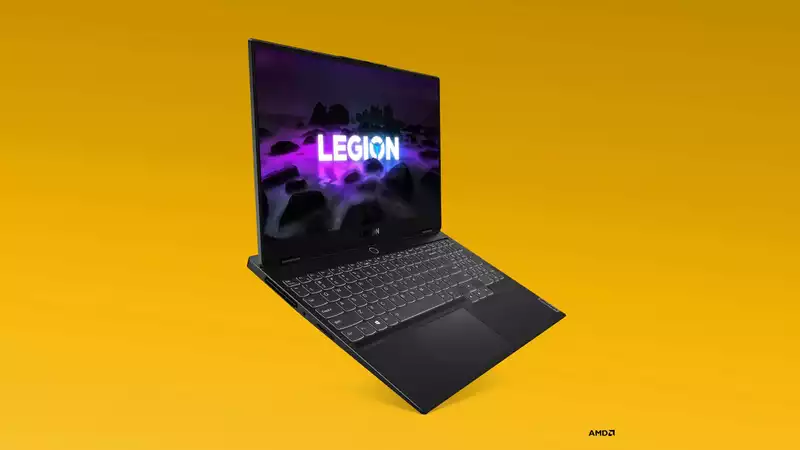Lenovo unveiled its top-of-the-line gaming laptops at CES 2021 with updates to the Legion 7 and Legion 7 Slim. Both models feature next-generation AMD Ryzen CPUs, RTX 3000 series graphics, and improved cooling performance.
Lenovo claims the new Legion Coldfront 3.0 thermal design increases airflow by 18%. This is welcome news since last year's Legion 7i ran hotter.
Lenovo did not underclock its components last year, allowing it to configure up to an 8-core CPU and RTX 2080 Super Max-Q GPU, which made the machine hotter due to increased power consumption. Throttling occurred at high loads even with vapor chambers.
Hopefully this new cooling design can handle the additional power of the latest AMD Ryzen and Nvidia RTX 3000 series chips.
But there is more to the latest Legion 7 models than a new cooling design. Here's what you need to know about the newly announced Lenovo Legion 7 and Legion 7 Slim.
Unfortunately, Lenovo did not reveal an exact date or timeframe for when customers can purchase the newly updated Legion 7 and Legion 7 Slim. However, if last year's release schedule is any indication, the Legion 7 will likely be available in May 2021, and the Legion 7 Slim will likely be available sometime in August or September.
Also, pricing for the Legion 7 and Legion 7 Slim is not yet known. Based on last year's iteration, the Legion 7 will likely be configurable for as low as $1,200 to $2,800; the Legion 7 Slim will have fewer configuration options but is estimated to start around $1,350.
This year, Legion 7 will see modest upgrades throughout. The screen will be slightly more vertical with an aspect ratio of 16:10 and will meet 100% of the sRGB color gamut. The near edgeless 16" QHD display (2560x1600) is 16% larger than last year's 15" model, is HDR 400 certified, and reaches 500 nits brightness. Lenovo also claims that the Legion 7 will be the world's first 165Hz panel on a laptop.
As for the processor, RAM, hard drive, and graphics card, Lenovo has not revealed specific details. The laptop maker confirmed that it will feature AMD's next-generation processors and Nvidia's new RTX 3000 series GPUs.
The 4000 series of AMD processors will see some significant improvements over last year's; unlike the 3000 series, which used a combination of 4 cores and 4 or 8 threads, the 4000 series is capable of up to 8 cores and 16 threads.
The 4000 series also uses a 7nm manufacturing process, making this year's chip line more efficient.
As for GPUs, the Legion 7 will likely consist of the Nvidia RTX 3060, 3070, or 3080; given the Legion 7 Slim's thin design, it will likely be 3060 only.
Since this year's CES was all virtual, we were unable to get our hands on either the Lenovo Legion 7 or the Legion 7 Slim. However, the images do show a design similar to last year's models.
There is still a lot of RGB in the fan grilles, keyboard, and port layout. The only noticeable difference from last year's model is the Legion 7's larger screen size.
As for the Slim, like last year's 7i Slim, there is noticeably less RGB. But that is to be expected from such a thin device. However, it appears to use a similar, if not exactly the same, housing.
Last year's Legion 7i offered battery life that was not bad for a gaming laptop. According to our sister site Laptop Mag, the Legion 7i had a battery life of 04:37. The new AMD 4000 series chips are more power efficient than last year's models, but Nvidia's new RTX 3000 series cards consume more power. Therefore, there will be no significant improvement in battery life this year.
The Lenovo Legion 7 line is already considered one of the best gaming laptop lines. Last year's model had some cooling issues, probably related to its less-than-ideal vapor chamber design, but this year Lenovo is hoping its Coldfront 3.0 will help reduce thermal stress.
We would have liked to see Lenovo update the Legion 7 design to work with Nvidia's excellent new GPU, but unfortunately that did not happen. Still, the current design is not bad, with a mix of professional simplicity and funny gamer-specific RGB.
If Lenovo can deliver a thermally tuned machine this year, it will likely be one of the best laptops released in 2021.
.









Comments